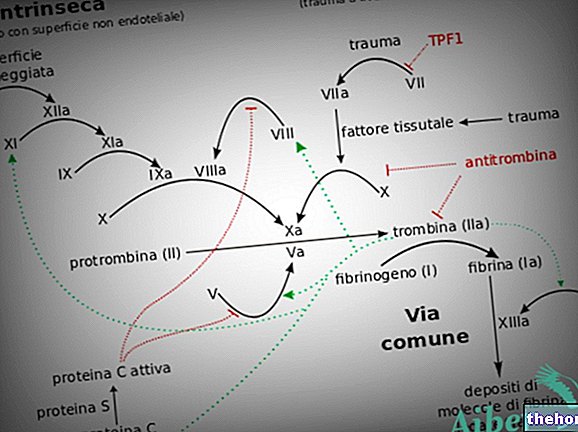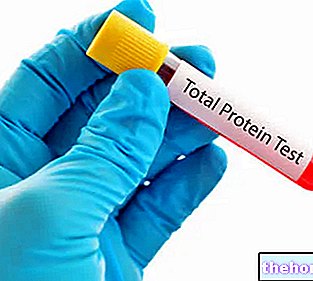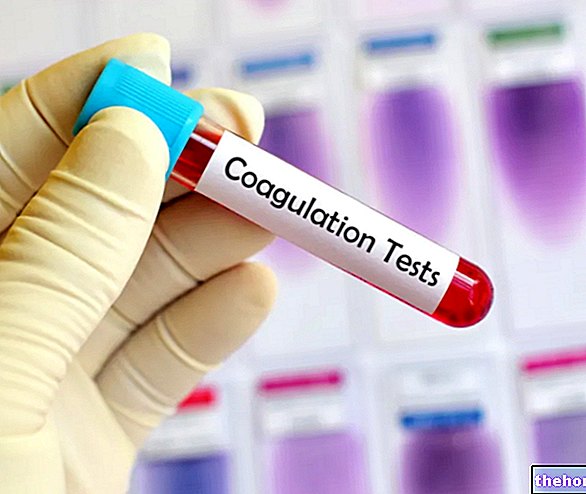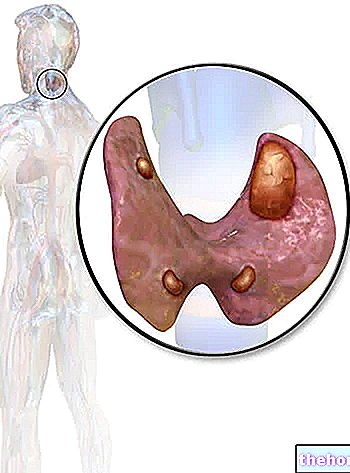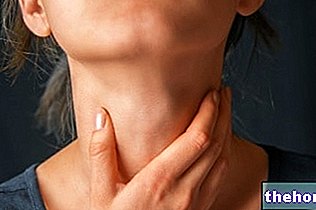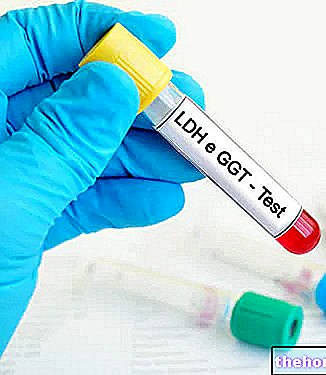Generality
Hypoglycemia consists in the excessive drop in blood glucose levels, to concentrations equal to or lower than 45-50 mg / dl. When this deficit becomes particularly severe, hypoglycemia becomes a high-risk metabolic alteration; glucose represents in fact the main energetic substrate for the organism and in particular for the brain.

Not surprisingly, the lack of this blood sugar causes symptoms such as weakness, tachycardia, hunger with craving for carbohydrates, nausea, anxiety, lack of muscle coordination, nervousness / irritability, mental confusion and sweating, up to hypoglycemic coma and death. .
Causes
Under normal conditions, severe hypoglycemia is a rare event, thanks to the intervention of automated neuroendocrine responses (reduced insulin synthesis and increased release of glucagon, catecholamines, cortisol and GH); moreover, hypoglycemia pushes the subject towards the search for food, preferably carbohydrate, which quickly restores the normality of glycemic levels.
Excess of insulin
Hypoglycemia is typical of diabetes treated with excessive doses of insulin or oral hypoglycemic agents, but it can occur - in a mild form - even in the healthy patient, for example due to too long fasting or intense and prolonged physical exertion.
Reactive Hypoglycemia
A particular form, called reactive or postprandial hypoglycemia, typically occurs after meals, often two or three hours after their end. Most of the time the cause of this condition remains unrecognized. In this regard, various hypotheses have been formulated; the first is that individuals affected by reactive hypoglycemia are too sensitive to adrenaline, a hormone - renamed stress - which produces symptoms similar to those caused by hypoglycemic crises, and whose release is favored by hypoglycemia. Another hypothesis is that these subjects do not produce sufficient quantities of glucagon, a hormone that opposes the excessive glycemic drop by counteracting the actions of insulin. Not surprisingly, reactive hypoglycemia can also be caused by hyperinsulinemia, or rather by "hypersecretion of insulin by the pancreas; not infrequently, this condition is accompanied by late hypoglycemia (after the fourth hour from the end of the meal).
At a medical level, impaired glucose tolerance accompanied by hyperinsulinemia is considered a prediabetic state, with possible and probable evolution to overt diabetes mellitus. Also for this reason reactive hypoglycemia is typical of the first stages of type II diabetes mellitus; in patients who are affected, hyperglycemia is recorded after a meal due to a delay in insulin secretion, which is insufficient in the first hours and excessive in the following hours.
Other Causes of Hypoglycemia
At the basis of reactive hypoglycemia may exist congenital enzyme deficiencies, such as hereditary fructose intolerance, galactosemia and sensitivity to leucine in newborns (amino acids also stimulate the release of insulin).
Another cause of reactive hypoglycemia is represented by gastro-resection surgeries to which, for example, obese people or people with stomach cancer are subjected; this condition, just like the congenital hypervelocity of gastric emptying, determines a rapid arrival of the chyme in the small intestine (which in normal conditions receives it very gradually) and an equally rapid absorption.
Role of Drugs and Food
There are drugs (such as acarbose), supplements (psyllium, guar gum, pectin) and in general foods rich in fiber, which act in the opposite direction and therefore - by slowing the intestinal absorption of glucose - can prove useful in prevention of reactive hypoglycemia.
On the contrary, the ingestion of alcohol in large quantities, especially in chronic alcoholics in a state of malnutrition, favors reactive hypoglycemia, probably due to the depression of gluconeogenesis induced by its metabolization.
Prevention
Role of the Diet
A meal particularly rich in simple carbohydrates (sugars), such as a feast of sweets, is a faithful ally of reactive hypoglycemia. The rapid entry into the bloodstream of glucose absorbed by the intestinal mucosa stimulates a strong pancreatic release of insulin, necessary for bring back blood sugar levels that have become dangerously high.
Thus, in the healthy individual, glucose enters the cells strongly, with a rapid decrease in its blood concentrations; we therefore speak of reactive hypoglycemia, a condition that, as we saw at the beginning of the article, stimulates the hypothalamic center of hunger. Hence the recommendation. to reduce the consumption of simple sugars and increase that of fresh vegetables, valid both for slimming diets (increases the sense of satiety, reduces bulimic crises), and in the preventive field, against diseases related to diabetes and overweight.
Behavioral Tips to Prevent Reactive Hypoglycemia:
- eat small but frequent meals, spaced about three hours apart;
- perform regular physical exercise, avoiding fasting workouts, which can be broken up by a small snack that doesn't burden the digestive system too much;
- limit or eliminate the consumption of nerve foods, such as tea, coffee and dark chocolate;
- follow a balanced diet, trying to limit the intake of alcohol and simple sugars in favor of complex ones, which in any case must be consumed with a certain moderation. The glycemic load of a meal is in fact more important than the glycemic index of individual foods. In theory, the use of fiber supplements, capable of slowing the intestinal absorption of glucose, could prove useful in the prevention of reactive hypoglycemia.
Diagnosis
The diagnosis of reactive hypoglycemia can be made on the basis of the results of the "OGTT, the" famous "oral glucose load test. In this test an aqueous solution of about 75 grams of glucose is administered orally, recording the glycemic values ( and possibly insulinemic ones) at pre-established time intervals (30 ", 60", 90 ", 120", 150 ", 180", 210 ", 240", 270 "300"). The diagnosis is certain if the glycaemia drops to below 45 mg / dL, while it is probable if the minimum blood glucose values are between 45 and 55 mg / dL. The test allows, among other things, to diagnose diabetes and impaired glucose tolerance, positive if the glycemic levels after 180 "from the ingestion of the solution rise, respectively, above 139 and 199 mg / dL.
Medicines for the treatment of "reactive hypoglycemia"

